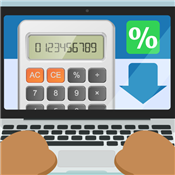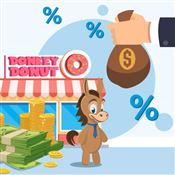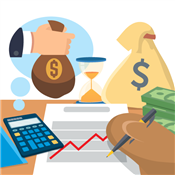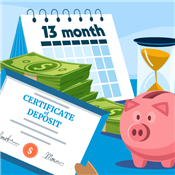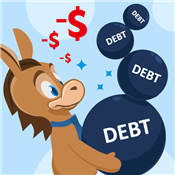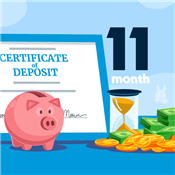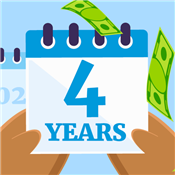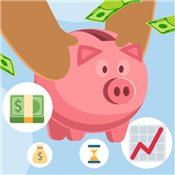Loan Balance Calculator
Wondering how much is left on your loan balance? Use this loan balance calculator to find out.
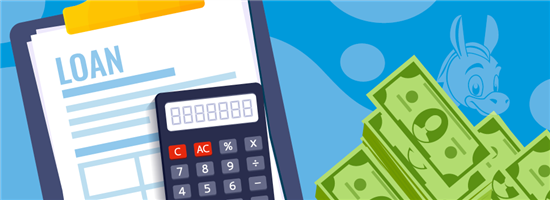 |
Managing your loans can be challenging, but a loan balance calculator can make it easier. Whether you're dealing with a mortgage, car loan, or student debt, this tool helps you track your remaining balance.
In this article, you'll learn how to use this loan balance calculator, its benefits, and how you can use it to stay on top of your financial commitments.
How to Use the Loan Balance Calculator
Which calculator to use will depend on the type of loan plan you have.
The Fixed Term calculator is for those who have loans that need to be paid within a specific timeframe. Here's how to use it:
- Enter your loan amount.
- Input the annual interest rate of your loan.
- Specify the loan terms (in years and months).
- Input the elapsed time (in years and months).
- Select a payment frequency from the dropdown menu.
From there, click "Calculate." You should now see your remaining loan balance, the total principal payments made, the number of payments left, and the remaining time you have to fully repay your loan. The calculator will also display an amortization schedule.
The Fixed Payment calculator is for those making fixed payments on your loan. Here's how to use it:
- Enter your loan amount.
- Input the annual interest rate of your loan.
- Specify how much you pay per period.
- Input the elapsed time (in years and months).
- Select a payment frequency from the dropdown menu.
From there, click "Calculate." It should show the same details as the Fixed Term calculator.
What Is a Loan?
A loan is money that one party (the lender) gives to another party (the borrower) with the expectation of repayment within a set period, usually with interest. Lenders are often banks or financial institutions, but individuals can also lend money.
Borrowers can be individuals or businesses, often seeking loans for significant purchases like a car or a house. Loans are formalized through a contract that outlines the agreed terms between the borrower and the lender.
There are four major components of a loan: the principal (amount you borrowed), loan term (how long you have to repay the loan), interest rate (the cost of borrowing money), and loan payments (the amount you pay per pay period).
Aside from that, a lender may have additional charges like origination fees and servicing fees. Be mindful of these as they can increase the cost of the loan.
Different Types of Loans
Loans can generally be classified into four types:
- Secured Loans
These are loans secured by collateral. An example of this would be mortgages where the property acts as collateral. This is usually the type of loan that lends out significant amounts of money. - Unsecured Loans
These are loans that don't need collateral. With unsecured loans, lenders are more thorough in assessing your ability to repay the loan. Examples of unsecured loans include personal and education loans. - Closed-End Loans
With closed-end loans, you'll have to fully repay the loan before you can borrow again. If you need to borrow more, you need to apply for another loan. Examples of closed-end loans include student loans, auto loans, and mortgages. - Open-End Loans
Open-end loans allow you to borrow money over and over as long as your credit limit allows it. Credit cards are an example of open-ended loans.
Things to Consider Before Applying for a Loan
Planning to apply for a loan? You should always remember that loans aren't free money. You have to repay it, often with interest. Before applying for one, be sure to consider the following:
- Credit score and history
Before you get your money, your lender will need to approve your loan application. A good credit score and history increase your chances of being approved. They signal to the lender that you're capable of making payments in a timely manner.Having a good credit score and history also gives you a better chance of getting better loan terms. For example, you may get a lower interest rate or a longer loan term. - Income
Once your loan is approved, you assume the responsibility of repaying it. Your income is your most reliable source of payment, which is why most lenders will require you to present proof of income. - Monthly expenses and obligations
Remember that taking out a loan will increase your total financial obligations. If you're already having a hard time with current expenses, getting a loan is likely just going to make things worse. Before applying for a loan, ask yourself if you can handle the additional financial burden. - Fees and charges
Some lenders may charge fees in addition to the interest rate. These include origination fees, application fees, prepayment penalties, and closing costs. Make sure to look for these, as they can affect the total cost of the loan.
Bottom Line
Using this calculator makes calculating your loan balance quick and easy. Just enter information on your loan and click "Calculate." In a matter of seconds, you'll know what your loan balance is.
Additionally, the calculator will also show you the total principal payments made, the number of payments left, and the remaining time you have to fully repay your loan. It also shows an amortization schedule.
Write to Patrick Santos at feedback@creditdonkey.com. Follow us on Twitter and Facebook for our latest posts.
|
|
| ||||||
|
|
|
